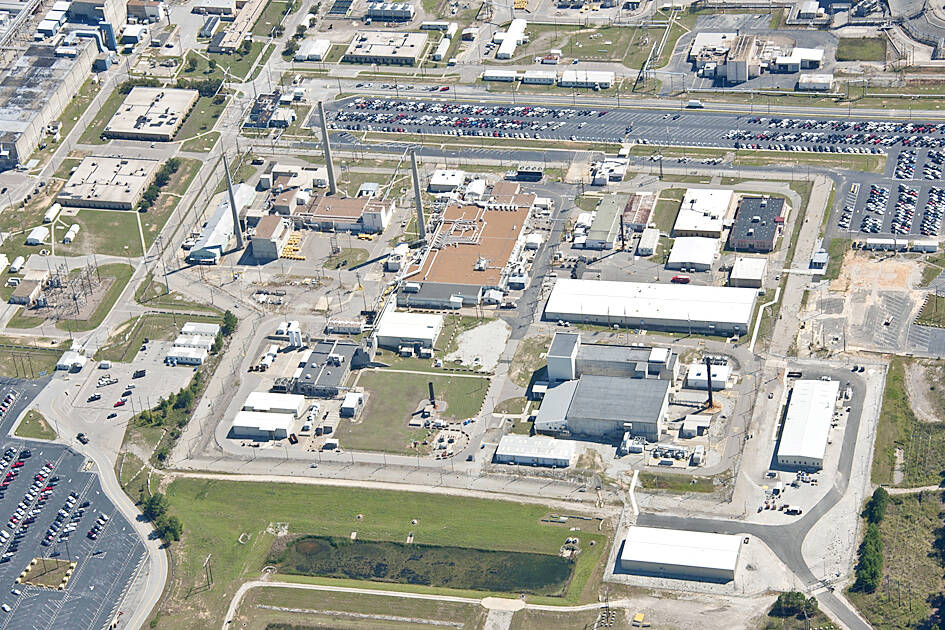US President Donald Trump’s administration has halted the firings of hundreds of federal employees who were tasked with working on the nation’s nuclear weapons programs, in an about-face that has left workers confused and experts cautioning that the Department of Government Efficiency’s (DOGE’s) blind cost cutting would put communities at risk.
Three US officials who spoke to The Associated Press said up to 350 employees at the National Nuclear Security Administration (NNSA) were abruptly laid off late on Thursday, with some losing access to e-mail before they’d learned they were fired, only to try to enter their offices on Friday morning to find they were locked out.
The officials spoke on the condition of anonymity for fear of retaliation.

Photo: Reuters / National Nuclear Security Administration
One of the hardest hit offices was the Pantex Plant near Amarillo, Texas, which saw about 30 percent of the cuts. Those employees work on reassembling warheads, one of the most sensitive jobs across the nuclear weapons enterprise, with the highest levels of clearance.
The hundreds let go at NNSA were part of a DOGE purge across the Department of Energy that targeted about 2,000 employees.
“The DOGE people are coming in with absolutely no knowledge of what these departments are responsible for,” Arms Control Association executive director Daryl Kimball said. “They don’t seem to realize that it’s actually the department of nuclear weapons more than it is the Department of Energy.”
Late on Friday night, NNSA Acting Administrator Teresa Robbins issued a memo rescinding the firings for all but 28 of those hundreds of fired staff members.
“This letter serves as formal notification that the termination decision issued to you on Feb. 13, 2025 has been rescinded, effective immediately,” said the memo, which was obtained by the AP.
The accounts from the three officials contradict an official statement from the energy department, which said fewer than 50 NNSA staffers were let go, calling them “probationary employees” who “held primarily administrative and clerical roles.”
But that was not the case. The firings prompted one NNSA senior staffer to post a warning and call to action.
“This is a pivotal moment. We must decide whether we are truly committed to leading on the world stage or if we are content with undermining the very systems that secure our nation’s future,” NNSA deputy division director Rob Plonski posted on LinkedIn. “Cutting the federal workforce responsible for these functions may be seen as reckless at best and adversarily opportunistic at worst.”
While some of the energy department employees who were fired dealt with energy efficiency and the effects of climate change, issues not seen as priorities by the Trump administration, many others dealt with nuclear issues, even if they did not directly work on weapons programs.
This included managing massive radioactive waste sites and ensuring the material there does not further contaminate nearby communities.
That includes the Savannah River National Laboratory in Jackson, South Carolina; the Hanford Nuclear Site in Washington state, where workers secure 177 high-level waste tanks from the site’s previous work producing plutonium for the atomic bomb; and the Oak Ridge Reservation in Tennessee, a Superfund contamination site where much of the early work on the Manhattan Project was done, among others.
The NNSA staff who had been reinstated could not all be reached after they were fired, and some were reconsidering whether to return to work, given the uncertainty created by DOGE.
Many federal employees who had worked on the nation’s nuclear programs had spent their entire careers there, and there was a wave of retirements in recent years that cost the agency years of institutional knowledge.
However, it is now in the midst of a major US$750 billion nuclear weapons modernization effort — including new land-based intercontinental ballistic missiles, new stealth bombers and new submarine-launched warheads. In response, the labs have aggressively hired over the past few years: In 2023, 60 percent of the workforce had been there five years or less.
Edwin Lyman, director of nuclear power safety at the Union of Concerned Scientists, said the firings could disrupt the day-to-day workings of the agency and create a sense of instability over the nuclear program at home and abroad.
“I think the signal to US adversaries is pretty clear: throw a monkey wrench in the whole national security apparatus and cause disarray,” he said. “That can only benefit the adversaries of this country.”

VENEZUELAN ACTION: Marco Rubio said that previous US interdiction efforts have not stemmed the flow of illicit drugs into the US and that ‘blowing them up’ would US President Donald Trump on Wednesday justified a lethal military strike that his administration said was carried out a day earlier against a Venezuelan gang as a necessary effort by the US to send a message to Latin American cartels. Asked why the military did not instead interdict the vessel and capture those on board, Trump said that the operation would cause drug smugglers to think twice about trying to move drugs into the US. “There was massive amounts of drugs coming into our country to kill a lot of people and everybody fully understands that,” Trump said while hosting Polish President

China on Monday announced its first ever sanctions against an individual Japanese lawmaker, targeting China-born Hei Seki for “spreading fallacies” on issues such as Taiwan, Hong Kong and disputed islands, prompting a protest from Tokyo. Beijing has an ongoing spat with Tokyo over islands in the East China Sea claimed by both countries, and considers foreign criticism on sensitive political topics to be acts of interference. Seki, a naturalised Japanese citizen, “spread false information, colluded with Japanese anti-China forces, and wantonly attacked and smeared China”, foreign ministry spokesman Lin Jian told reporters on Monday. “For his own selfish interests, (Seki)

Japan yesterday heralded the coming-of-age of Japanese Prince Hisahito with an elaborate ceremony at the Imperial Palace, where a succession crisis is brewing. The nephew of Japanese Emperor Naruhito, Hisahito received a black silk-and-lacquer crown at the ceremony, which marks the beginning of his royal adult life. “Thank you very much for bestowing the crown today at the coming-of-age ceremony,” Hisahito said. “I will fulfill my duties, being aware of my responsibilities as an adult member of the imperial family.” Although the emperor has a daughter — Princess Aiko — the 23-year-old has been sidelined by the royal family’s male-only

A French couple kept Louise, a playful black panther, in an apartment in northern France, triggering panic when she was spotted roaming nearby rooftops. The pair were were handed suspended jail sentences on Thursday for illegally keeping a wild animal, despite protesting that they saw Louise as their baby. The ruling follows a September 2019 incident when the months-old feline was seen roaming a rooftop in Armentieres after slipping out of the couple’s window. Authorities captured the panther by sedating her with anesthetic darts after she entered a home. No injuries were reported during the animal’s time on the loose. The court in the